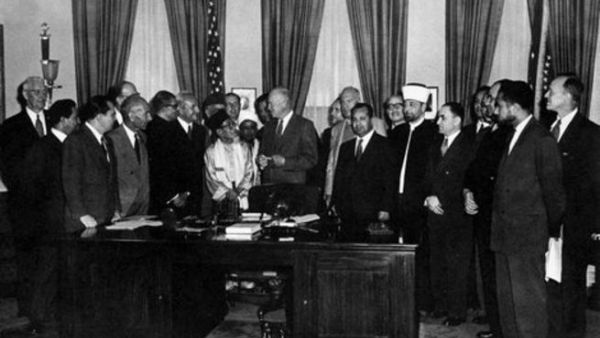Morsi has been dubbed Egypt's "New Pharaoh", but this isn't some cutesy reference to any imagined similarity between the man with a PhD in engineering and a mummy of Tutankhamen. Instead, the Arabic usage is more pejorative, and there is a clearer connection to the Pharaoh (King of Egypt) of the Bible, whose hubris and arrogance nearly led to the killing of an ancient prophet.
To be fair, Morsi's latest pronouncement, in the Constitutional Declaration, put his presidency beyond the reach of any body within the state--something which even Mubarak, in theory, did not have. Morsi's supporters claim his new powers will not be used maliciously--and are asking the Egyptian electorate to take that reassurance at face-value. It's the sort of thing which one accepts from an opposition force, not an elected head of state.
Indeed, when the Muslim Brotherhood--the political grouping which forms the backbone of Morsi's support, but with which he no longer has an institutional affiliation--was a quasi-legal opposition group, they could do no harm, with most of their efforts going on poverty relief and charity. The pan-Islamist approach Morsi takes in all things political has been evidenced in some ways--witness the unexpectedly robust Egyptian attitude towards the Israeli assault on Gaza in November. Even if he had to court the usual power brokers -not unlike those Camp David days - in order to accomplish a truce; and narrowly avoided a party split in reconciling Brother ideology with Israel dialogue. Those sorts of things are likely to win him support, however; what is bothering the many, many thousands of Egyptians protesting today is the Egyptian MB's inability to satisfactorily make the transition from Islamist opposition, with fiery rhetoric, to mild-mannered politicians.
Morsi seems to have made the previous decision, giving himself supreme control of the drafting of the Egyptian constitution, without regard for the legal niceties becoming of a head of state. What did he think the people would do? Would they just trust that, because he had a beard, he wasn't going to become another Mubarak?
Today the rank and file of the Muslim Brotherhood face a real challenge: do they support their man in the presidency, or do they prove their commitment to democratic principles, and the separation of powers, by forcefully demanding that Morsi step down?
What do you think? Are the Muslim Brotherhood fit for purpose as rulers of Egypt - or should they admit defeat and return to their comfort zone in the opposition where they can be-loud mouthed and potent?







